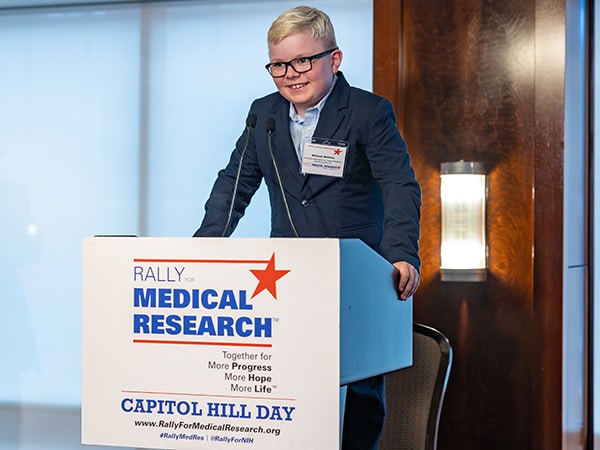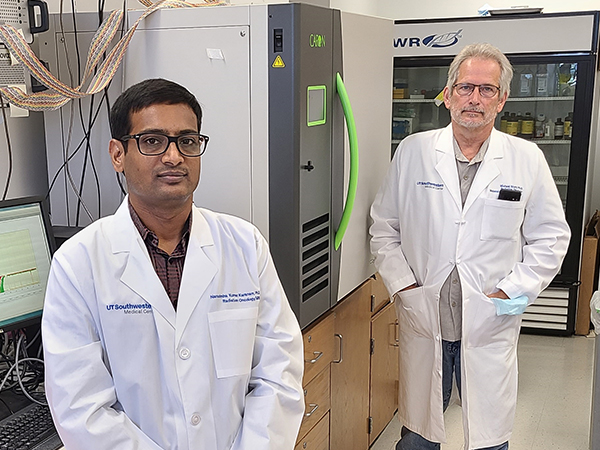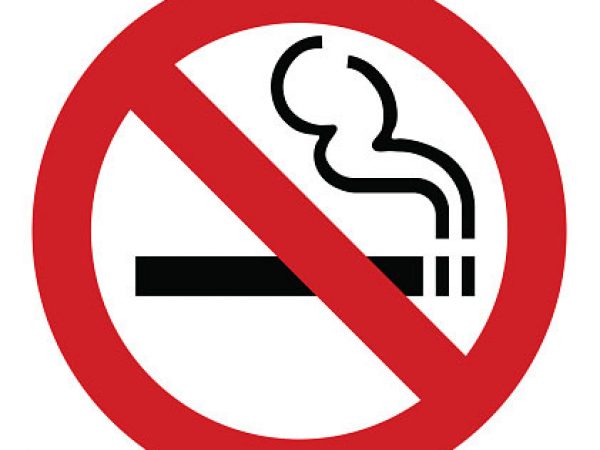Annual Meeting 2022: Transitions at the National Cancer Institute
Guest post by Ned Sharpless, MD, FAACR
As I announced a short time ago, I have decided to step down as director of the National Cancer Institute (NCI). Working at NCI has been the highlight of my career, and I am honored to have had the chance to serve my country in this role, alongside so many talented and passionate scientists and staff throughout the organization. They wake up every day thinking about how to reduce cancer suffering. I strongly support the goal of the Biden-Harris administration to “End Cancer As We Know It,” and I leave this job knowing that everyone at NCI will do everything in their power to deliver on this top presidential priority.

MD, FAACR
As NCI transitions to a new director, it will be in great hands with NCI Principal Deputy Director Douglas R. Lowy, MD, as acting director. Doug has ably served in this role in the past and is well situated to do this again. He and I have worked closely throughout my tenure, and I have always appreciated his expertise and perspective. Doug is an excellent scientist and leader who is well suited to guide NCI and the cancer community across this bridge to the future.
For those of you attending the AACR Annual Meeting this year, be sure to check out Doug Lowy’s Fireside chat with AACR President, David A. Tuveson, MD, PhD, FAACR, on Monday to hear more about the road ahead for NCI.
A link to the Fireside chat is available here.
A truly exciting future lies before us in cancer research, as members of the AACR know well. Through decades of basic and translational research, we’ve unlocked many of the mysteries of cancer biology, which has helped drive a boom in cancer treatments and technologies. Those advances, and major initiatives like the Cancer Moonshot℠ and the Childhood Cancer Data Initiative, have paved the way for faster progress fueled by unprecedented access to cancer insights and data.
I spoke last year at the AACR Annual Meeting about the significant decrease in cancer mortality over the past 30 years, the recent accelerating rate of decline, and the very real prospect of achieving even faster declines. President Biden’s new goal to reduce the age-adjusted cancer mortality rate by half in the next 25 years—which he developed with guidance from NCI—is bold, yet achievable. Achieving that reduction would reflect significant progress and a huge step along the path to transforming the national experience of cancer.
Working closely with the Biden administration, NCI has described important aspects of this quest to end cancer as we know it. Beyond the focus on cancer mortality, we need to promote health equity, diagnose cancer sooner, speed progress against the deadliest and rarest cancers, and improve how we target treatments to the right patients. Those are just a few.
As NCI works toward these goals, there are real and immediate needs to improve prospects for cancer researchers and nurture a vibrant cancer research community. One of its most significant is its payline to support investigator-initiated research. Though we have made some progress, the payline remains low and I am concerned about what that means for cancer research. The current 11th percentile payline for established investigators is discouraging to scientists. A payline this low makes it hard for researchers to see a future in the field. We also worry about the many terrific grant applications describing new scientific approaches, but which will go unfunded with paylines this low. For these reasons, I’ve repeatedly emphasized the NCI goal to reach the 15th percentile for established investigators, and 20th percentile for early-stage investigators. Doug Lowy shares this goal, and NCI remains fully committed to extramural funding and investigator-initiated research, because it is so important for making progress across the cancer research continuum.
Another critical issue on NCI’s agenda is building an inclusive cancer research community and workforce that reflects the populations we serve—because it’s what’s right and because it’s important to ensuring that our advances reach all populations equitably. We simply cannot end cancer as we know it if we don’t get this right. NCI has long been a leader in addressing cancer health disparities. I am extremely proud of our work to promote health equity through newer initiatives emanating from NCI’s Equity and Inclusion Program and NCI’s leadership within the NIH’s Faculty Institutional Recruitment for Sustainable Transformation (FIRST) program. But there is still much work to do, at NCI and across the cancer research community.
As I reflect on my time in the federal government, I am inspired by the many ways that researchers, caregivers, advocates, and survivors have broken down silos to work together in new ways to solve some of the toughest problems in cancer.
To all the terrific colleagues with whom I have had the pleasure of working at NCI, NIH, FDA and across government: it has been a privilege and an honor. To those scientists, caregivers, and advocates outside of government who spend so much of their time and energy advising and supporting the NCI, thank you for your outstanding efforts, which are key to the institute’s progress and success.
I am grateful and proud of my service to the American people and what NCI has accomplished during my tenure. I anticipate returning to my life’s work of ending cancer suffering, but from outside federal government. NCI is in excellent hands going forward, and I look forward to continuing our work together from a different vantage point.



